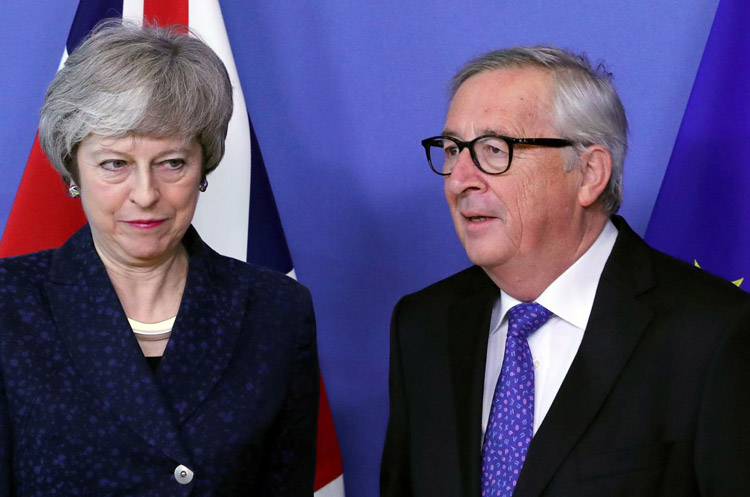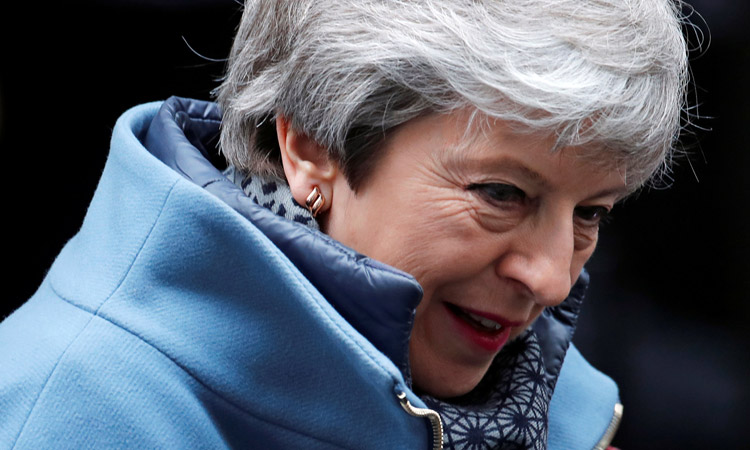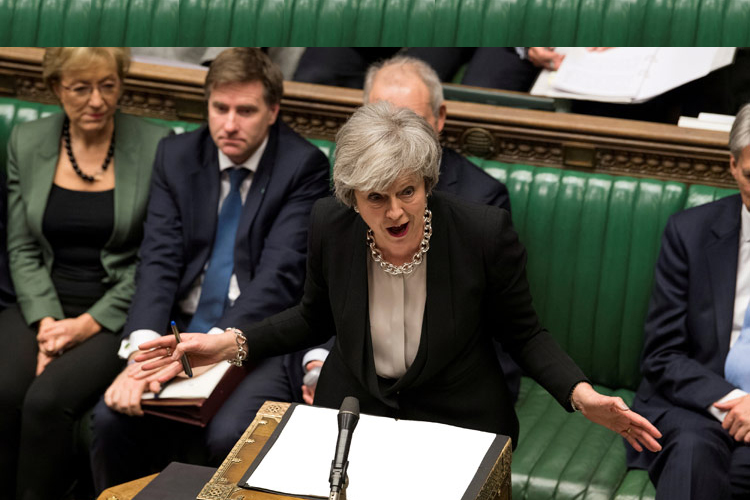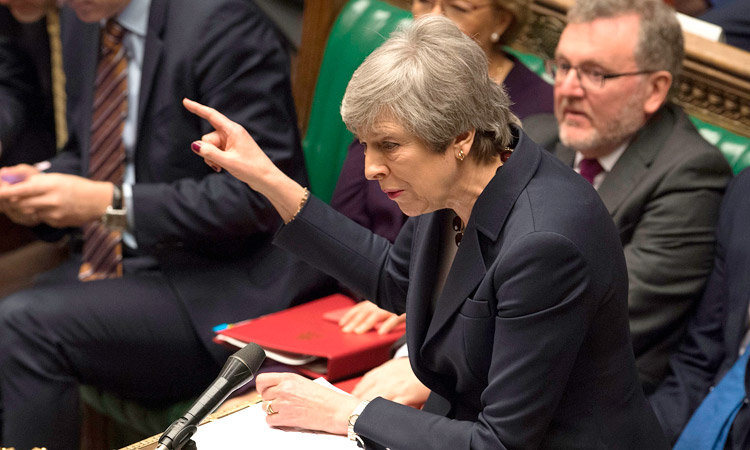Leavers, Remainers in no mood for a compromise

Andrew Grice
Political columnist for The Independent.

Nigel Farage
When Theresa May opted to unveil her “new deal” in a speech away from the Commons chamber, she hoped to escape the two-hour mauling from MPs that has followed most of her recent statements there.
Her move failed spectacularly. Avoiding direct combat with MPs did not stop them attacking what was in fact a rather old deal that mainly rehashed several concessions floated in recent months. Within an hour of the speech, it was clear her deal was dead in the water.
The only question now is whether May presses ahead with the second reading of her Withdrawal Agreement Bill in two weeks. I doubt it. Although her instinct will be to fight on, cabinet ministers and Tory whips will surely advise her to avoid a final humiliating defeat. Indeed, it would be better to depart with some dignity and say she had tried her best to deliver Brexit. Significantly, Michael Gove, while backing the deal on BBC Radio 4 this morning, stopped short of saying the planned vote would go ahead.
May has form: she delayed a promised vote on her deal in December. But this time she knows that, if she pulls the vote, her premiership will end in a different kind of failure. If she cannot bring forward the bill, Tory MPs would ask, as one said to me: “What is the point of Theresa May?” She would have to resign immediately.
If she did not, leaders of the 1922 Committee of Tory MPs would take matters into their own hands, by changing party rules to allow another vote of confidence in her as leader. May would be well advised to jump first. Doing so would also avoid losing a confidence vote among Tory constituency chairs on 15 June. “This would be the ultimate humiliation,” one former aide said. “The party is in her DNA. It’s her family.”
Ministers knew the game was up when Lisa Nandy, a key May target, said the PM had not gone far enough on a customs union. In fact, May would have moved further but the cabinet would not let her. Similarly, her plan to offer a free vote on a Final Say referendum was also blocked at the heated cabinet session.
The Brexit saga is littered with “what ifs” but if May had offered her 10-point “consensus” two years ago, after losing the Tories’ overall majority, it might just have worked. The only way to save her deal at this very late stage would have been to include a confirmatory referendum in the bill. (She offered a vote on a referendum during the bill’s passage but that would happen anyway if it secured a second reading as MPs could table amendments). But a confirmatory referendum would probably have provoked cabinet resignations and an even more hostile reaction from Tory MPs. Again, May was snookered.
She is now powerless to solve the problem that has haunted her all along: both Brexiteers and Remainers would rather hold out for their dream scenario than compromise. Eurosceptics wait for a new leader and possibly a no-deal exit, and are prepared to risk MPs finding a way of blocking it. Supporters of Remain and a referendum believe they will have a better chance of building a majority as the way to stop no deal just before the 31 October deadline. They are prepared to risk getting close to the cliff edge again.
I am struck by how revocation of Article 50 – scrapping Brexit altogether – has entered the mainstream of the debate in recent weeks. It is now the policy of Change UK. It might come to this if May’s successor embraces no deal as active policy, which they might. But if MPs overturned the 2016 referendum, it would play into Nigel Farage’s hands. The best route out of this mess is to give the people the Final Say.







